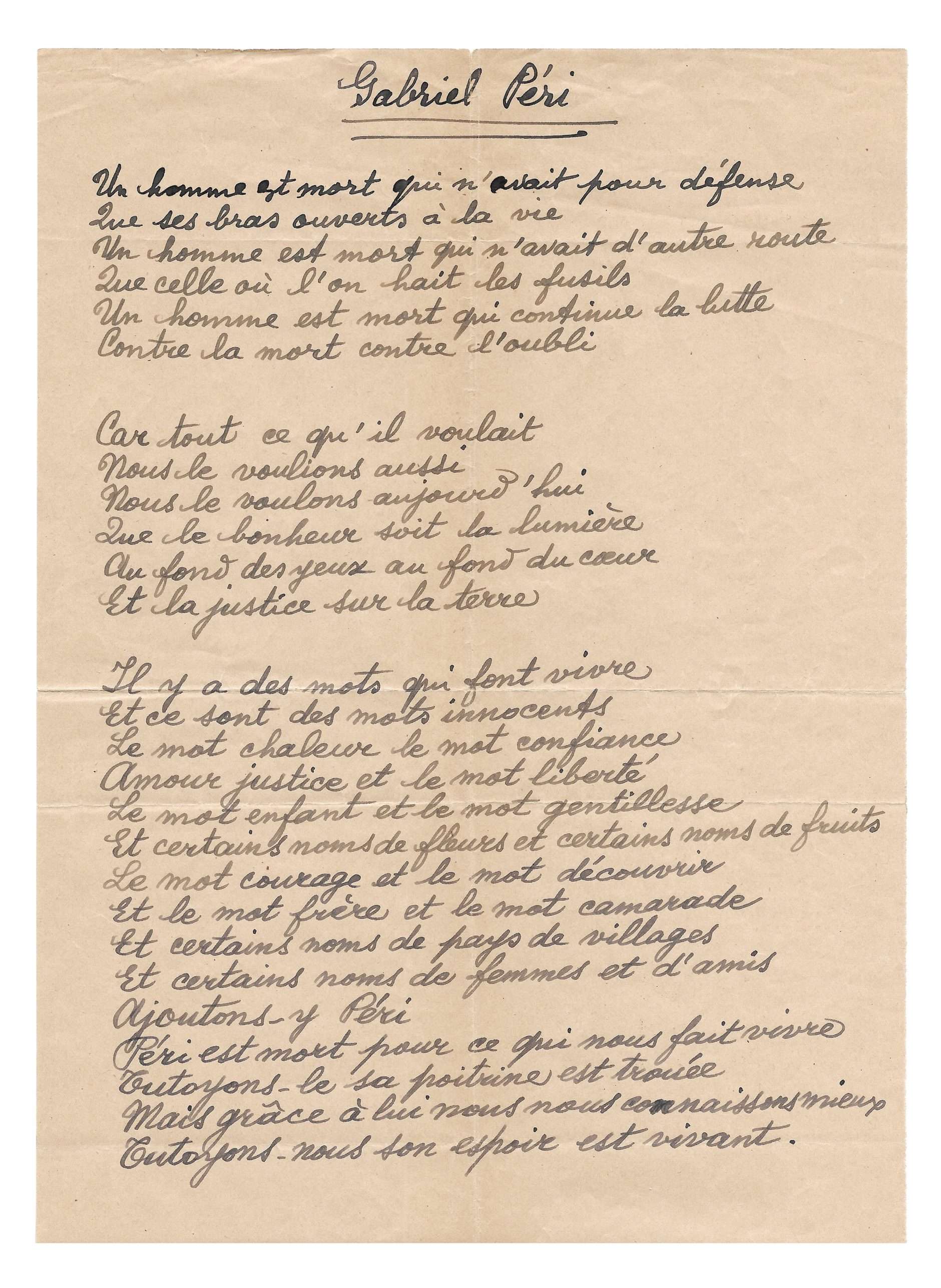ÉLUARD, Paul (1895-1952)
Autograph poem, in honor of Gabriel Péri
N.p.n.d [after 1945], 1 p. in-folio (30,9 x 20,9 cm)
« Péri est mort pour ce qui nous fait vivre / Tutoyons-le sa poitrine est trouée »
Fact sheet
ÉLUARD, Paul (1895-1952)
Autograph poem, in honor of Gabriel Péri
N.p.n.d [after 1945], 1 p. in-folio (30,9 x 20,9 cm)
Period fold marks
Moving poem of Resistance, from the collection Au rendez-vous allemand, in honor of Gabriel Péri
« Un homme est mort qui n’avait pour défense
Que ses bras ouverts à la vie
Un homme est mort qui n’avait d’autre route
Que celle où l’on hait les fusils
Un homme est mort qui continue la lutte
Contre la mort contre l’oubli
Car tout ce qu’il voulait
Nous le voulions aussi
Nous le voulons aujourd’hui
Que le bonheur soit la lumière
Au fond des yeux au fond du cœur
Et la justice sur la terre
Il y a des mots qui font vivre
Et ce sont des mots innocents
Le mot chaleur le mot confiance
Amour justice et le mot liberté
Le mot enfant et le mot gentillesse
Et certains noms de fleurs et certains noms de fruits
Le mot courage et le mot découvrir
Et le mot frère et le mot camarade
Et certains noms de pays de villages
Et certains noms de femmes et d’amies
Ajoutons-y Péri
Péri est mort pour ce qui nous fait vivre
Tutoyons-le sa poitrine est trouée
Mais grâce à lui nous nous connaissons mieux
Tutoyons-nous son espoir est vivant »
Initially circulating clandestinely during the war, this poem was published in one of Éluard’s most famous collections: Au rendez-vous allemand, in 1944, high symbol of the French Resistance. It will later be reprinted in L’Humanité, Parrot, Paul Éluard, 1953, p. 147, le Sang des poètes and recueil 84, Gabriel Péri.
Great figure of the Resistance, Gabriel Péri (1902-1941) joined L’Humanité journal in 1934. Member of the Central Committee of the Communist Party (1929), deputy of Seine-et-Oise in 1932, he became, in 1936, vice-president of the Foreign Affairs Committee of the Chamber. Animator of the Cahiers clandestins du parti communiste during the occupation, he was arrested in May 1941 and shot by the Germans at Mont Valérien on December 15, 1941.
This poem appears as the celebration of a martyr, it simultaneously exalts the values of life and underlines the fraternity to which they invite. Like the entire collection, Éluard perpetuates the memory and calls for resistance.
Provenance:
Louis Aragon
Reference:
Paul Éluard, Œuvres complètes, éd. Marcelle Dumas et Lucien Scheler, Pléiade, t. I, p. 1262
